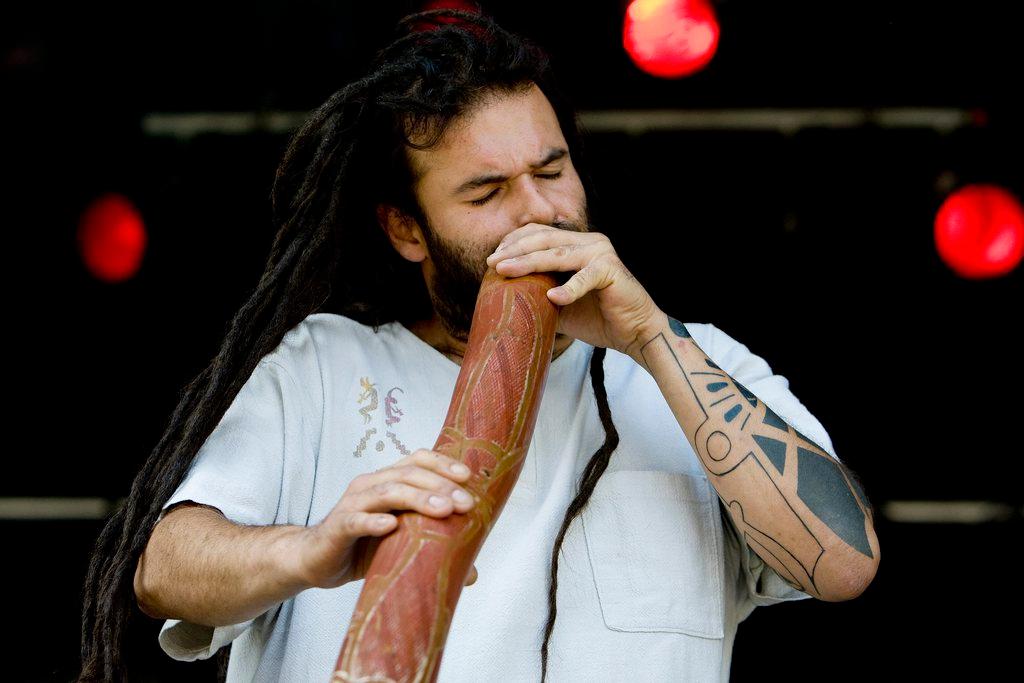Swiss researcher can blow his own didgeridoo thanks to Ig Nobel Prize

Milo Puhan of the University of Zurich has been awarded the 27th Ig Nobel prize in medicine for his paper on the effect of playing the didgeridoo on snoring and sleep apnoea.
His work, first publishedExternal link in the British Medical Journal in 2006, involved getting 25 volunteers to play the Australian aboriginal musical instrument for four months. The goal was to assess if it had any impact on snoring and sleep apnoea problems among the test subjects.
“Regular didgeridoo playing is an effective treatment alternative well accepted by patients with moderate obstructive sleep apnoea syndrome,” the study concluded.
Sleep apnoea – or breathing pauses during sleep – occurs due to the collapse of the upper airways. Those with serious problems have to sleep with a machine that provides continuous airway pressure. After a didgeridoo instructor reported reduced snoring and daytime sleepiness among his students, Puhan decided to test whether playing the instrument could help those with a moderate form of sleep apnoea by training the muscles of the upper airways.
Puhan, a professor of epidemiology and public health, will receive his Ig Nobel Prize at a gala ceremony at Harvard University’s Sanders Theatre on Thursday. The prizes, handed out by genuine Nobel Prize winners, is meant to honour achievements “that first make people laugh, and then make them think”. The real Nobel Prizes will be announced next month.
“We are very happy to receive the prize tonight which honours the novelty and the risk we took with this study,” Puhan told swissinfo.ch by email.

In compliance with the JTI standards
More: SWI swissinfo.ch certified by the Journalism Trust Initiative











You can find an overview of ongoing debates with our journalists here . Please join us!
If you want to start a conversation about a topic raised in this article or want to report factual errors, email us at english@swissinfo.ch.